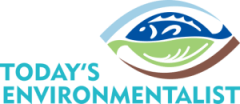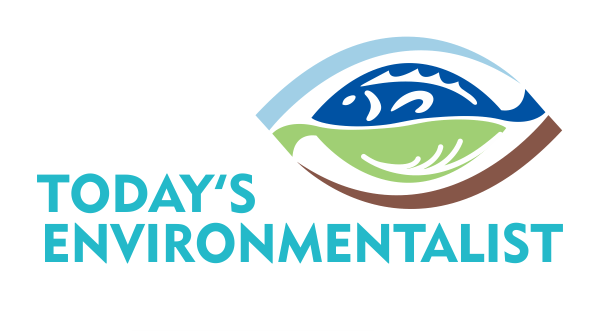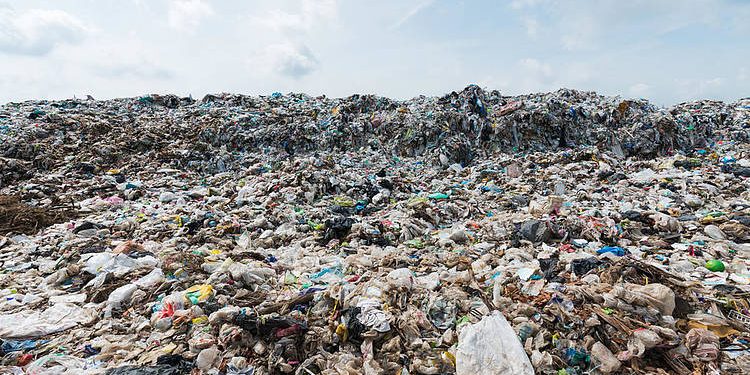To mark its 10-year anniversary, the Plastic Free July® challenge is calling on people to choose to refuse single-use plastic in a bid to help exceed last year’s worldwide efforts and hit the global target of 1 billion kilos of waste avoidance.
The Plastic Free July challenge helps millions of people take small, daily actions and is proven to significantly avoid landfill waste and lower the risk of plastic polluting the environment. Last year, the challenge reduced each participant’s household waste and recycling by an average of 5% (23kg).
Given the use of some single-use plastic for many takeaway items has increased over the past few months during the COVID-19 pandemic, there is a heightened sense of urgency to reinstate the positive progress made in reducing plastic waste and pollution.
Rebecca Prince-Ruiz, founder of the Plastic Free July challenge and one of the world’s leading plastic waste experts, explains why she believes the challenge can achieve record waste avoidance this year.
“Every year this challenge has grown exponentially, having started with only 40 colleagues in Perth to over 250 million global participants. This year the challenge feels more poignant than ever as we begin to realise how intrinsically our social and physical environment is tied to the fundamental wellbeing of our communities. We have also seen the power of collective action firsthand. Whilst Plastic Free July is a personal challenge, participants are part of a global effort to create cleaner streets, oceans, and a cleaner, healthier planet. We can all be part of the solution.”
The Plastic Free July Challenge seeks to address the most critical solution to plastic pollution – waste avoidance. Reducing waste and recycling is significantly more energy efficient than piling up landfill or trying to extract plastic waste from the environment.
“Plastic Free July isn’t about drastic lifestyle change; it’s about being more conscious of the single-use plastics that you use day-to-day and taking small but smart steps to reduce them. Simple swaps could include switching to bar soap or avoiding plastic when you buy your vegetables. The majority of challenge participants started by choosing to refuse at least one single-use plastic but nine out of 10 ended up creating long-term habits that lasted far beyond the challenge itself,” said Rebecca Prince-Ruiz.
Last year, 87% of participants switched from plastic wrap to reusable food containers (using nearly half (40%) the plastic food wrap than people not in the challenge) and 73% of participants refused take-away coffee (double that of those who have not been part of the challenge).
Plastic Free July campaign provides free resources to schools, community groups and local organisations to empower change locally. The campaign also supports businesses to move away from the concept of ‘take, make and throw away’, towards a circular economy that promotes recycling and the re-use of materials. The campaign was a finalist of Banksia Sustainability Award, recognised for its contribution to the United Nations’ global sustainability goals to protect the planet.
Sign up to be part of the Plastic Free July movement and learn more, visit www.plasticfreejuly.org.
Media contact:
For media enquiries please email media@plasticfreejuly.org with your country in the subject line.
About Plastic Free July® challenge
Plastic Free July is designed to help people refuse single-use plastic and improve recycling practices. The challenge continues to drive positive change through simple solutions that help communities live more sustainably for example using reusable cups, water bottles and plastic bags, and refusing to buy produce wrapped in plastic.
From humble beginnings in 2011, the award-winning Plastic Free July campaign is the result of years of hard work. Started by Rebecca Prince-Ruiz and a small team in local government in Western Australia, and is now one of the most influential environmental campaigns in the world. Millions of people across the globe take part every year, with many committing to plastic reduction far beyond the month of July.
On a larger scale, Plastic Free July challenge aims to kick-start long-lasting solutions and influence business and governments to take action to:
• Improve recycling: Follow local recycling guides and put items in the right bin. Petition governments to require businesses to use recycled plastic in their products and packaging.
• Embrace a circular economy: Encourage businesses and organisations to move away from the concept of ‘take, make and throw away’, towards a circular economy that promotes recycling and the reuse of materials.
• Extended producer responsibility (EPR): Push businesses to own the product management lifecycle. This involves producers considering the end-of-life of the products they sell, and making it easy for customers to dispose of products thoughtfully. Container deposit schemes are a good example of this – they reduce beverage container litter by an average of 40% and increase recycling too.
About Plastic Free Foundation
The Plastic Free Foundation is a global not-for-profit organisation which delivers the annual Plastic Free July challenge and works with communities to achieve a world without plastic waste.
The Foundation was established in 2017 by Rebecca Prince-Ruiz and operates across the globe. The Foundation is a registered charity with the Australian Charities and Not-for-Profits Commission (ACNC) and the Charities Aid Foundation of America (CAF). As a registered not-for-profit, donations will help the Foundation to continue to help millions of people and organisations across the world make change.
The Plastic Free Foundation’s Executive Director, Rebecca Prince-Ruiz, is available for speaking opportunities at events or conferences.








